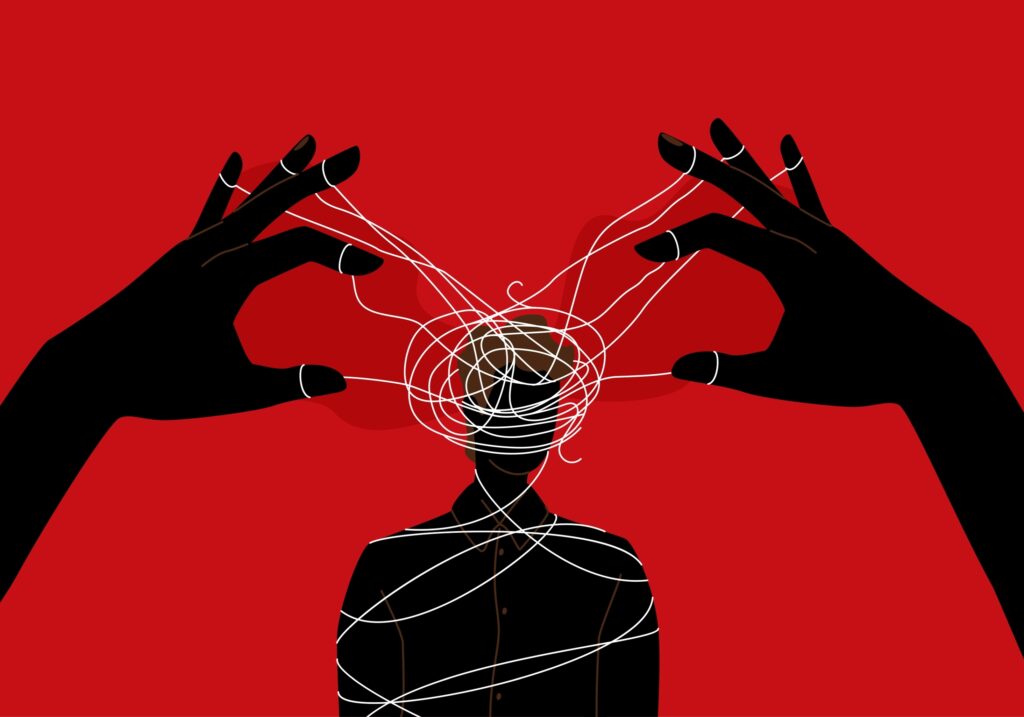The Quiet Habits of Adults Who Grew Up Feeling Unloved

Have you ever felt like you’re just playing a part in your own life? You smile when you feel empty inside, you keep giving even when you have nothing left, and you achieve amazing things only to feel like a fraud who’s about to be found out.
These aren’t just random quirks. For many people, they’re the quiet echoes of a childhood where emotional support and love were missing. This is often called Childhood Emotional Neglect (CEN). It’s not about bad things that happened to you, but about what didn’t happen—the lack of emotional connection with your caregivers. This creates an invisible wound that shapes who you become. It builds habits that you needed to survive as a kid, but now they hold you back from living a life of true connection and happiness. Let’s explore these quiet habits, not as flaws, but as clues to a story that you can learn from and rewrite.
1. Constantly Doubting Your Own Worth

Deep down, do you have a constant feeling of not being good enough? This isn’t just a fleeting moment of low self-esteem; it’s a core belief that you are somehow flawed, and it runs in the background of your life. It’s like your brain has a filter that automatically blocks out compliments and positive feedback but highlights anything that could possibly confirm you’re not worthy. This often shows up as “Impostor Syndrome.” You could get a promotion at work, and instead of feeling proud, your first thought is, “They must have made a mistake.” You have the habit of feeling like you just got lucky and don’t really deserve your success, constantly fearing that one day everyone will see the “real,” inadequate you.
2. Relentlessly Chasing Perfection

The habit of feeling unworthy often fuels a relentless, exhausting need to be perfect. This isn’t a healthy drive to do your best; it’s a desperate survival strategy born from a childhood belief: “If I am perfect, then maybe I’ll be loved and accepted.” This means you might spend hours agonizing over a tiny detail in an email or a project, not because it improves the quality, but because you’re terrified of being judged for any mistake. This habit is shadowed by a deep fear of failure, where any misstep, no matter how small, feels like it confirms your deepest fear—that you are not good enough. It’s a stressful, unwinnable cycle of anxiety and burnout that leaves you feeling like you can never measure up.
3. Constantly Scanning for Disapproval

To survive in a childhood where you couldn’t predict how your parents would react emotionally, you might have formed the habit of being on high alert all the time. As an adult, this hypervigilance continues. It means you over-analyze every conversation, replaying it in your head to check for missteps. You might misinterpret a neutral tone in a text message as anger or read a thoughtful pause as a sign of judgment. You’re constantly scanning people’s faces and body language for the smallest signs of disapproval. Living this way is incredibly draining and makes it almost impossible to relax and be your authentic self, because you’re too busy performing a risk assessment to be present in the moment.
4. Pushing People Away When They Get Close

It’s a strange and painful conflict: you crave deep connection more than anything, but you’re also deeply terrified of it. When someone starts to get emotionally close, an alarm bell goes off inside you. Being truly seen, with all your vulnerabilities exposed, feels incredibly unsafe because, in the past, being vulnerable led to being ignored or hurt. This can lead to the habit of creating a “push-pull” pattern in your relationships. You pull people in because you want love, but then you unconsciously push them away just when things start to get serious, perhaps by starting a fight or emotionally shutting down to create distance and regain a sense of safety.
5. Putting Everyone Else’s Needs First
A common habit is always being the “helper,” “fixer,” or “over-functioner” for everyone else. This comes from a deep belief learned in childhood that your value is based on how useful you are to others. To be loved, you must be needed. As an adult, you try to make yourself essential to others so they won’t abandon you. You get into the habit of giving too much of your time and energy, often saying “yes” to things you don’t have the capacity for, leaving your own needs unmet. The simple act of saying “no” feels impossible because it’s tied to a deep-seated fear of disappointing others and, as a result, being rejected.
6. Hiding Your True Feelings

The habit of hiding your true feelings often looks like wearing a suit of invisible armor. On the surface, you look strong, capable, and like you have it all together. You might be the funny one, the reliable one, the one who is always “fine.” But your true feelings—your fears, your sadness, your needs, your pain—are kept locked away where no one can see them. This armor was built to protect you from being hurt or dismissed as a child, a time when expressing emotions wasn’t safe. But now, it’s the very thing that keeps you from forming the deep, authentic connections you long for, leaving you feeling lonely even when you’re surrounded by people.
7. Choosing Partners Who Recreate the Past

It might not make sense on the surface, but a common and painful habit is being repeatedly attracted to partners who are emotionally distant, critical, or unavailable—people who feel familiar because they recreate the emotional landscape of your childhood. This isn’t because you enjoy pain. It’s an unconscious pull toward what you know, an attempt to resolve old wounds. According to the work of psychologist John Bowlby, our early relationships create a blueprint for our adult ones. Chasing someone who can’t fully love you back can be an unconscious quest to finally “win” the love you never got, but it often just leads to a painful repetition of the original hurt.
Why This Happens: Your Brain and Your Story

These habits aren’t just in your head; they are wired into your brain. A child’s brain grows through connection. When a caregiver consistently responds to a child’s emotional needs, it builds a healthy brain. When that connection is missing, it’s a form of stress that can change the brain’s physical structure.
Research shows this can make the brain’s fear center overactive, which is why you might feel on high alert. It can also stunt the growth of the brain’s pleasure and reward center, making it harder to feel joy.
Because kids naturally think the world revolves around them, they can’t see that their parents might be the ones who are unable to connect. So, they come to a simple, heartbreaking conclusion: “It must be my fault.” This creates deep beliefs that run your life as an adult: “My feelings are a burden,” “My needs are too much,” and ultimately, “I’m not worthy of love.”
How to Heal: Finding Your Way Back to Yourself
While these wounds are deep, they aren’t a life sentence. Healing is an active journey of reclaiming the parts of yourself you had to hide and consciously building the safe inner world you never had. Here is how to begin:
- Acknowledge and Validate Your Past. The first step is to break the silence. Because emotional neglect is invisible, you may have dismissed your pain. Acknowledgment means looking back honestly and giving yourself permission to grieve what was missing. This isn’t about blaming parents but validating your own childhood experience. Tell yourself, “My feelings as a child were real and important.”
- Practice Active Self-Compassion. Shame and self-criticism are at the core of this wound; self-compassion is the antidote. Actively treat yourself with the kindness you’d offer a friend. When your inner critic speaks, consciously respond with a realistic thought like, “I am trying my best, and that is enough.” You can also comfort yourself physically by placing a hand over your heart to calm your nervous system.
- Reconnect With Your Emotional World. You learned to disconnect from your feelings to survive. Healing means safely reconnecting with them as your internal guidance system. Start by simply naming your feelings throughout the day to build emotional literacy. You can also care for your “inner child” by visualizing your younger self and offering the comfort you needed, saying, “I see you. I’m here for you now.”
- Redraw Your Relational Blueprints. Your past created unhealthy relationship patterns, but you can consciously create new ones by setting boundaries. This skill directly fights the people-pleasing habit. Start with small requests, like saying, “I need a little time to think about that.” Remember that each boundary is a gift to yourself, reinforcing the message that your needs matter and building the self-worth that was missing.
Your New Story
The quiet habits you developed are the echoes of an old wound, but they don’t have to define your future. They are not who you are; they are the armor you wore to survive.
Seeing these patterns is the first step to taking off the armor. Healing isn’t about forgetting the past; it’s about understanding it. It’s about honoring the smart ways you learned to protect yourself and realizing you don’t need them anymore.
This is your invitation to do more than just survive. It’s time to build a new story for your life—one defined not by a lack of love from others, but by the love you learn to give yourself. It’s a path back to you, and it leads to the connection you’ve always deserved.
Loading...

